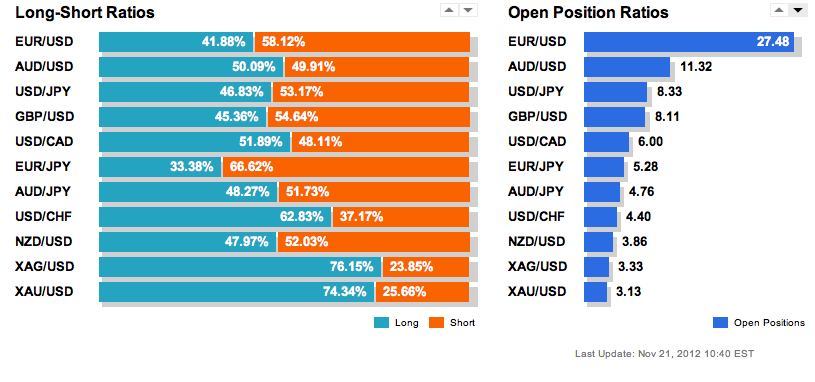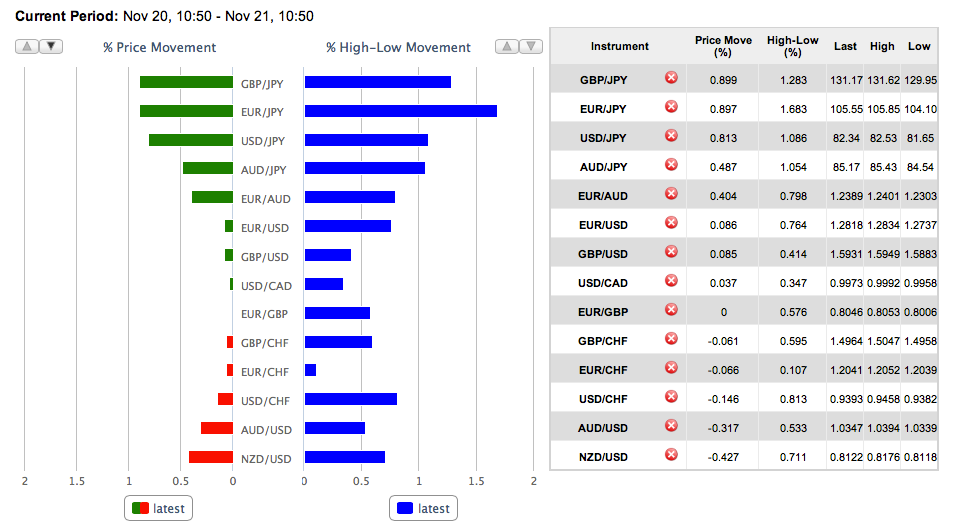After failing to reach and agreement on Greek debt Merkel has issued a statement where she is confident there will be a deal reached next Monday. The failure to reduce the debt Greece owes to 120 percent of GDP would require some members to take a haircut on their loans. The IMF, ECB and European finance ministers failed to agree in a 12 hour meeting in Brussels. The main division between lenders were Greek debt sustainability and reducing its deficit.

The new level is the one suggested by the IMF as sustainable, but some nations have in the past commented that reducing debt would be illegal given how the process was approved. Angela Merkel is under fire from German opposition politicians. This rift in Germany is not a good sign for what it is to be the first of many steps outlined by Merkel to push the bulk of the euro zone rescue funds.

Italian Prime Minister Mario Monti’s government won a confidence vote on its latest budget plan. The votes were 426 in favor and 88 against. The main objective of the budget plan is to reduce the public deficit to 1.8 percent of GDP. Italy is on track to a 2.6 percent of GDP figure in 2012.
Spanish Central Banker Luis Maria Linde addressed the senate today and he did not mince words when he said that even though some members of the current government see signs of recovery, he doesn’t see anything. Not in the economy and not in the labor market. The economic adjustment process is underway but since the changes are structural in nature they will take time before results are evident.
A Bloomberg Consumer Expectations report this week shows more American households are more optimistic about the US economy in the next decade. The reelection of President Obama solved one of the biggest uncertainties this year, the stock market continues to rise and there are good news on the housing front were the factors boosting confidence. Retailers are expecting that confidence translates into spending and a real boost to the economy.

Fed Chairman Ben Bernanke has raised some flags about how the fiscal cliff is holding back the US economy. In a speech yesterday he urged Congress to strike a deal to avoid a recession. “The realization of all of the automatic tax increases and spending cuts that make up the fiscal cliff, absent offsetting changes, would pose a substantial threat to the recovery,” he said.
Bank of Japan kept its monetary policy unchanged and no changes were announced to its special loan program. Earlier this morning Japan reported a fall of 6.5 percent in total exports, versus the expected 4.9 percent fall. A strong Yen and China’s slowdown contributed to the fall. Exports to China particularly suffered as the fallout of the Island dispute was felt as Chinese consumers boycotted Japanese products in retaliation.
This article is for general information purposes only. It is not investment advice or a solution to buy or sell securities. Opinions are the authors; not necessarily that of OANDA Corporation or any of its affiliates, subsidiaries, officers or directors. Leveraged trading is high risk and not suitable for all. You could lose all of your deposited funds.


